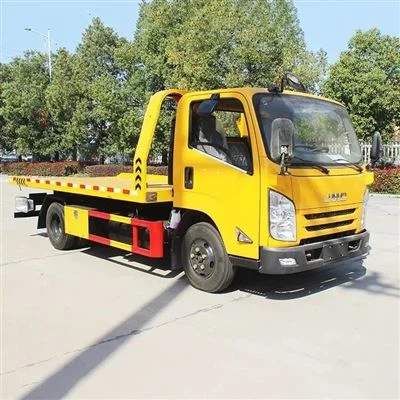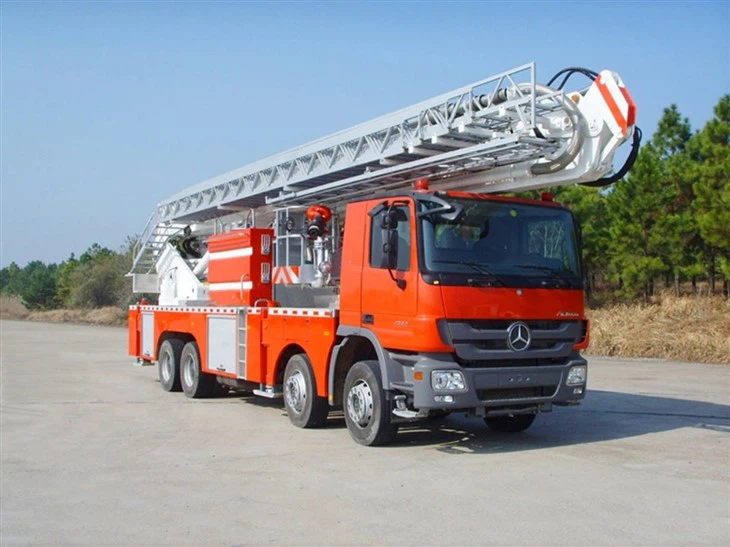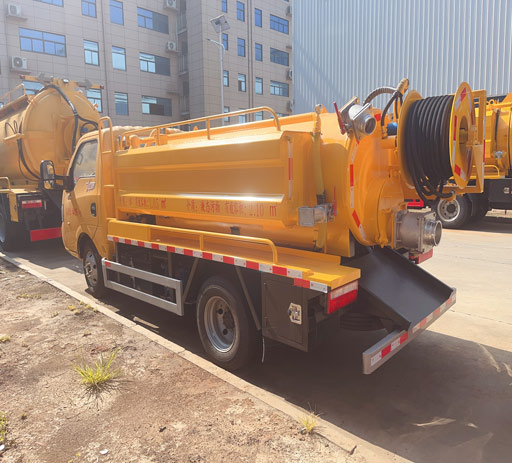Understanding LPG Gas Trucks: A Comprehensive Guide

Liquefied Petroleum Gas (LPG) trucks are essential vehicles in the transport and delivery of energy sources across various industries. They play a critical role in ensuring that LPG, a clean and efficient energy source, reaches end-users safely and reliably. In this article, we will delve into the various aspects of LPG gas trucks, including their operation, benefits, safety precautions, and practical tips for choosing the right one for your needs.
What is an LPG Gas Truck?
An LPG gas truck is a specialized vehicle designed to transport liquefied petroleum gas. These trucks are equipped with tanks specifically built to store LPG under high pressure, allowing for efficient transport over long distances. LPG is commonly used for heating, cooking, and as fuel for vehicles, making these trucks vital in the energy supply chain.
The Importance of LPG Gas Trucks in Today’s Economy
LPG gas trucks are crucial for several reasons:

- Energy Distribution: They ensure a consistent supply of LPG for residential and commercial use.
- Environmental Benefits: LPG is cleaner than many other fossil fuels, helping to reduce greenhouse gas emissions.
- Economic Viability: LPG trucks contribute to job creation in logistics and transport sectors.

Types of LPG Gas Trucks
When considering LPG gas trucks, it’s important to know that they come in various types tailored for specific needs and applications:
Cylinder Trucks
Cylinder trucks are designed to transport smaller cylinders of LPG, usually used for domestic purposes. These trucks can carry multiple cylinders and are perfect for home delivery services.
Tanker Trucks
Tanker trucks are larger vehicles designed to transport bulk LPG. They feature insulated tanks that keep the gas in a liquefied state, making them ideal for commercial applications and refilling stations.
Bobtail Trucks

Bobtail trucks are medium-sized vehicles used for on-site delivery of LPG. They have a smaller tank capacity compared to large tankers but are agile and easier to maneuver in urban settings.
Key Features of LPG Gas Trucks
When selecting an LPG gas truck, be sure to look for the following key features:
Safety Features
Safety is paramount in transporting flammable gases. Essential safety features include:
- Emergency Shut-off Valves: Allow for quick disconnection from the supply in emergencies.
- Pressure Relief Valves: Prevent over-pressurization of the tank.
- Fire-resistant Materials: The construction should be resilient to high temperatures.
Capacity and Size
The size and capacity of the truck will greatly impact its efficiency. Smaller trucks are good for urban areas, whereas larger ones are better suited for long-distance transport.
Regulatory Compliance
All LPG gas trucks must comply with local regulations concerning safety and environmental standards. Ensure the vehicle is certified and adheres to applicable codes.
Benefits of Using LPG Gas Trucks
Utilizing LPG gas trucks provides significant advantages for businesses and consumers alike:
Cost-Efficiency
Transportation of LPG is often more cost-effective compared to other fuels, providing savings on logistics and operational costs.
Reduced Emissions
LPG trucks produce lower emissions compared to diesel or gasoline-powered vehicles, making them a greener choice for transportation.
Versatility
These trucks can be used in various applications, from delivering to homes to supplying commercial industries.
Maintenance Tips for LPG Gas Trucks
To ensure optimal performance and safety of LPG gas trucks, consider the following maintenance tips:
Regular Inspections
Conduct routine inspections of the truck’s tank and safety features. Check valves and connections for leaks.
Engine Maintenance
Maintaining the engine is crucial for ensuring efficiency. Schedule regular oil changes and tune-ups.
Driver Training
Ensure that drivers are well-trained in handling LPG and understand safety protocols.
Choosing the Right LPG Gas Truck
Selecting the appropriate LPG gas truck requires careful consideration of various factors
Assess Your Needs
Determine your transport needs based on the volume of LPG you intend to deliver.
Evaluate Budget
Consider both the purchase price and ongoing maintenance costs when evaluating options.
Look for Reputable Manufacturers
Choose trucks from manufacturers known for quality and safety. Read reviews and ratings from other users.
Future Trends in LPG Gas Transportation
The LPG gas trucking industry is evolving. Here are some of the trends to watch for:
Increased Safety Regulations
As environmental concerns rise, expect more stringent safety regulations to be enacted.
Technology Integration
Advancements in technology, such as GPS tracking and automated safety systems, are becoming more common.
Alternative Fuel Options
There is growing interest in using bio-LPG and other renewable sources to reduce carbon footprints further.
FAQs About LPG Gas Trucks
1. What is the average lifespan of an LPG gas truck?
The average lifespan can vary, but with proper maintenance, an LPG gas truck can last anywhere from 10 to 20 years.
2. How do I ensure the safety of my LPG gas truck?
Regular maintenance, following safety protocols, and ensuring compliance with regulations are key to maintaining safety.
3. Can LPG gas trucks operate in extreme weather conditions?
Yes, LPG gas trucks are designed to operate in various weather conditions, but extra precautions should be taken in extreme situations.
4. What type of insurance is needed for LPG gas trucks?
Liability insurance is essential, along with coverage for cargo and accident protection.
5. Are there any environmental concerns with LPG gas trucks?
While LPG is cleaner than many fossil fuels, proper handling and truck maintenance are necessary to minimize risks.
6. How can I find reliable LPG gas truck services?
Look for local distributors with good reviews, check for regulatory compliance, and request references from other customers.
